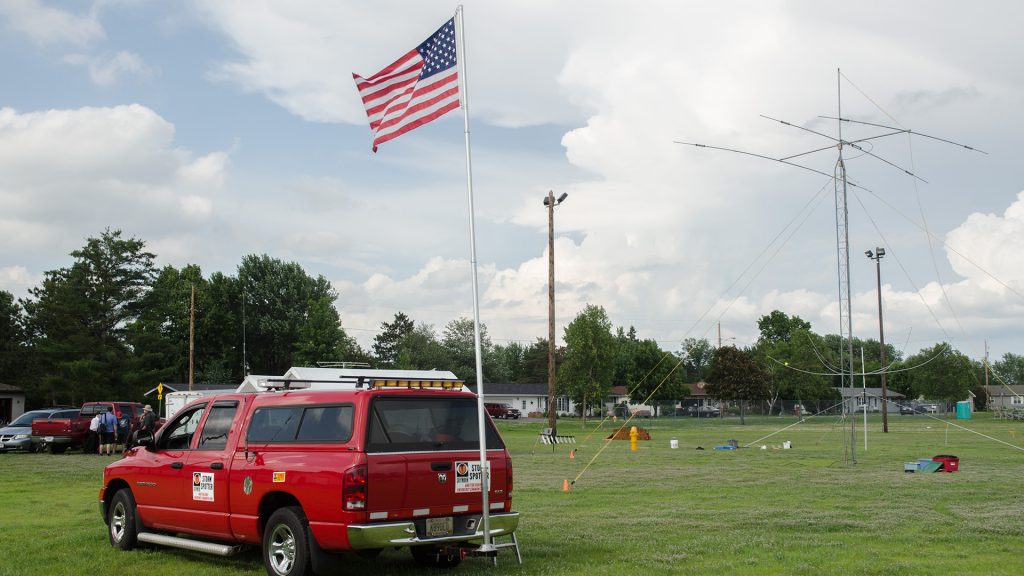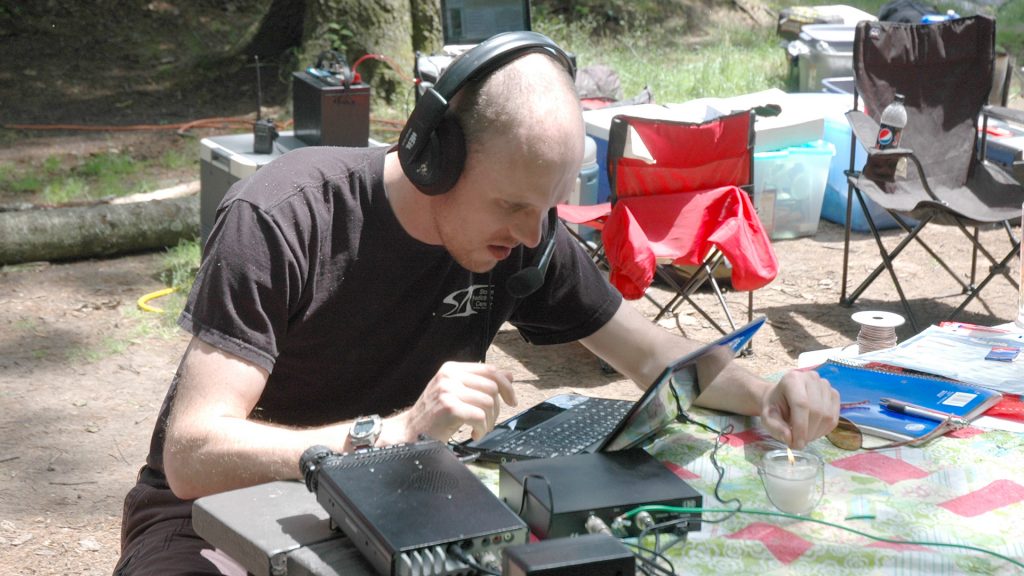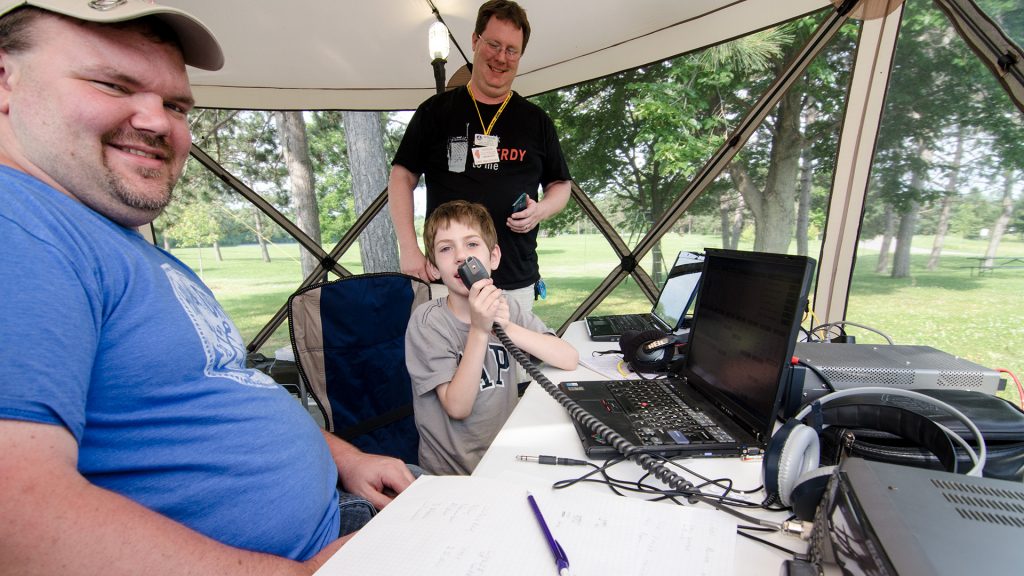Field Day is fast approaching and soon parks and empty fields like the one behind me will be bustling with activity. On the fourth full weekend of June more than 40,000 hams throughout North America hit the airwaves in what is billed the world’s largest amateur radio event. Of course the purpose of Field Day is to set up a temporary amateur radio station- often in a non-traditional location and operate for a 24 hour period. Working in the wild like this can bring out a myriad of challenges, the largest, not withstanding, is operator and station safety.
Our amateur radio club has consistently put up field day stations since the early 1930s. We also take safety seriously and appoint a safety officer to oversee set-up, operation, and tear-down; making sure to minimize risks and keep participants safe.
Lets talk safety. This year the ARRL offers a 100 point bonus if your Field Day operation has an individual appointed to be a safety officer and that the safety officer performs the necessary due diligence to provide for a safe operation. In the rule packet they provide a checklist of items that must be carried out in order to qualified for the bonus. So lets go through the list on what’s necessary for a safe operation.
First item, the Safety Officer or a qualified designated assistants was on site for the duration of the event. Your safety officer may not be on site for the entire event, so just like it’s important to have a control operator on site at all times, the same is true with safety officers.
Fuel for generator is properly stored. Fuel should be kept away from the generator and also operational radio equipment.
Fire extinguisher on hand and appropriately located. Is the fire extinguisher properly charged? Does everyone know how to use it?
First Aid kit on hand.
First Aid, CPR, and AED trained participants on site for full Field Day period. How many of your club members have CPR training?
 Access to NWS alerts to monitor for inclement weather. I recommend a primary and secondary means of receiving alerts, such as through your phone and also with a NOAA weather radio.
Access to NWS alerts to monitor for inclement weather. I recommend a primary and secondary means of receiving alerts, such as through your phone and also with a NOAA weather radio.
Tent stakes properly installed and marked. If you are pounding anything in the ground, call diggers hotline to check for underground lines and pipes in advance of your setup.
Temporary structures properly secured and marked. This includes all towers, guy lines, and masts on your site.
Site secure from tripping hazards. Cables, ropes, power cords, all can cause trip and fall hazards. Route those cables out of traffic areas and mark hazards with cones, safety flags, or markers.
Site is set up in a neat and orderly manner to reduce hazards. Provide a gathering place for participants and guests that’s away from operations. Keep people away antennas are support structures, and route all cables away from traffic areas. Keeping the working area neat and tidy will enhance the overall safety of your operation.
Stations and equipment properly grounded. Generator and electrical lines require effective grounding for shock hazards. Station grounds are needed for proper operation, and towers and support structures need to be grounded for lightning protection. Make sure to call diggers hotline before pounding any ground rods into the earth.
 Access to a means to contact police/fire/rescue if needed. Nowadays most parks and public locations have adequate cell service. But if your field day setup is in a more remote location, are you able to call for help?
Access to a means to contact police/fire/rescue if needed. Nowadays most parks and public locations have adequate cell service. But if your field day setup is in a more remote location, are you able to call for help?
Safety Officer is designated point of contact for public safety officials. Be it a curious police officer or a response due to a call for help, the safety officer should be the first one to brief the public safety officials when they arrive.
 Minimize risks and control hazards to ensure no injuries to the public. Visitors to your site may not know about the inherent risks of amateur radio operation. Brief them of any hazards and ensure that they comport themselves in a safe manner.
Minimize risks and control hazards to ensure no injuries to the public. Visitors to your site may not know about the inherent risks of amateur radio operation. Brief them of any hazards and ensure that they comport themselves in a safe manner.
Monitor participants for hydration and ensure an adequate water supply is available. I think this is one of the most important safety considerations for field day. Know the signs of heat exhaustion and sun stroke. Make sure everyone is properly hydrated. You don’t need to physically exert yourself to become dehydrated. It can happen on hot, humid days or in cool and breezy weather.
Of course appointing a safety officer and completing a checklist doesn’t absolve anyone from safety responsibilities. Safety is everyone’s duty. Be aware of your surroundings, and the safety and welfare of yourself and others. If you see something unsafe, report it and fix it.
Recent Comments